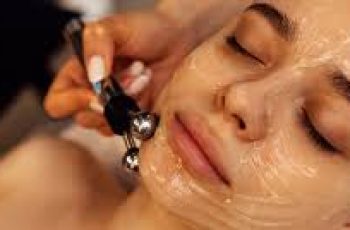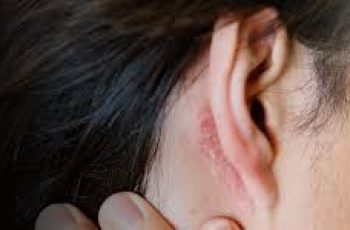Eczema 101: Everything You Need to Know, From Causes to Treatment
If you’ve been managing extremely dry and itchy skin, there’s a chance you could have a common condition called eczema. Eczema is an inflammatory skin condition that causes symptoms like dry, itchy, and irritated patches of skin. “Eczema is categorized as a type of dermatitis—a skin condition that causes inflammation of the skin—that can be activated by [several] causes, including exposure to an allergen or irritant, high levels of stress, or dry climates and weather,” says board-certified dermatologist Melanie Palm, MD.
We asked Palm, along with board-certified dermatologists Jeremy Brauer, MD, and Lauren Penzi, MD, to tell us everything there is to know about eczema. Keep reading for what they said.
Meet the Experts
Melanie Palm, MD, is a board-certified dermatologist and cosmetic surgeon at Art of Skin MD.
Jeremy Brauer, MD, is a board-certified dermatologist and dermatologic surgeon at Spectrum Skin and Laser in New York.
Lauren Penzi, MD, is a board-certified dermatologist who specializes in medical and cosmetic dermatology at MDCS Dermatology in New York.
What Causes Eczema?
The specific cause of eczema isn’t well understood, but it’s likely several different factors, including genetics, environmental triggers, and problems with the immune system or skin barrier. Here’s a bit more information about the factors that may cause eczema or trigger symptoms to flare up:
Genetics: Eczema often runs in families. A big risk factor for eczema is having relatives who have eczema, asthma, or seasonal allergies, says Brauer.
Skin barrier defects: Dysfunction within the skin barrier can make it harder for the skin to retain moisture and protect itself from outside elements like irritants, allergens, and microbes that can trigger eczema.1
Environmental factors and allergies: Environmental factors like pollen, pollution, pet dander, or extremely cold or dry weather can all trigger eczema symptoms. “For some people, exposure to these environmental factors can cause an eczema flare,” Palm says.
Food allergies: Palm tells us that some foods that can trigger eczema are peanuts, tree nuts, gluten, and dairy.
Irritants: Harsh irritants found in soap, perfume, lotion, and detergent can cause eczema flares.2 Similarly, wool and other rough or itchy fabrics can also be problematic for some people with eczema.3
Fluctuating hormones: Hormonal changes brought on by menstruation, pregnancy, breastfeeding, or menopause can sometimes trigger eczema flares.4
Who Is More Likely to Have Eczema?
Eczema affects people of all ages. Most people develop the condition as children, but it can develop at any age.5 Some factors, such as allergies and genetics, can make someone more likely to have eczema.
Those with environmental allergies (such as hay fever) and food allergies are more prone to eczema or atopic dermatitis. “It’s also more common among children, but usually improves or resolves by the time a child reaches puberty,” Palm says.
How Can Eczema Be Treated?
There’s no cure for eczema, but you have many options to treat the condition. The specific treatment regimen may differ from person to person, depending on the severity of the symptoms. Preventive measures like moisturizing and avoiding triggers are generally necessary for all people with eczema, adds Penzi.
Here are some common treatments your dermatologist may recommend:6
Antihistamines: These may help relieve itching and discomfort.
Moisturizer: “Hypoallergenic lotions and moisturizers can moisturize your skin and relieve the dryness that eczema causes,” Brauer says.
Corticosteroid cream: This may help reduce itching and soothe the skin.
Avoid triggers: To best manage eczema and prevent it from flaring up, it’s helpful to know what your triggers are. “Generally, I advise my patients to stay away from scented products and fragrances like air fresheners, perfume, dryer sheets, scented detergents, and even scented candles,” Palm says. “If your eczema flare is caused by an allergy to pet dander or pollen, be diligent about vacuuming, washing your bedding in hot water frequently if you have pets, and having an effective air purifier in key areas of your home.”
Minimize stress: Stress can worsen eczema and contribute to flares, so it can be beneficial to find methods that help you keep it at bay.
Avoid rough-textured clothing: For some, tight and scratchy clothing can be highly irritating and might contribute to eczema flares. If you know that a specific clothing material (such as wool) causes your eczema to flare, it’s best to avoid it.
Use a humidifier: If you live in a dry climate, a humidifier can help add moisture to the air, minimizing the chances of an eczema flare.
Prescription medications: In cases where eczema is moderate to severe, a dermatologist may prescribe medications like Janus kinase (JAK) inhibitors, injectable biologics like dupixent and tralokinumab, or oral steroids to reduce skin inflammation.
Light therapy: Narrowband UVB phototherapy, a specific type of light therapy, has been shown to help treat eczema, often in addition to topicals.
The Final Takeaway
Eczema is a common condition that causes the skin to become dry, itchy, and irritated. Often, symptoms come and go. “It is caused by a complex interaction of genetics, epidermal barrier dysfunction, immune dysregulation, and environmental factors,” Penzi says. “Patients with eczema often have other related disorders, including asthma and seasonal allergies, but this is not always the case.”
Eczema can’t be cured, but you have many treatment options. If you’re concerned you might have eczema, it’s best to see a doctor so they can weigh in with an appropriate treatment plan. “A board-certified allergist, immunologist, or dermatologist can help determine whether you have eczema… via an allergy test or a skin biopsy,” Palm says.
DQH Knowledge drop: In your 20s, your skin cell turnover decreases. (Cell turnover is a key component in keeping your skin youthful.) You know what else slows down? Your collagen production. Starting in your 20s, collagen decreases by about 1 percent per year. Should you want to prevent fine lines and wrinkles, start by eliminating behaviors that contribute to premature aging. “If it’s bad for you, it’s bad for your skin,” says dermatologist Michel Somenek.
“Cigarette smoking reduces blood flow to the skin and causes premature wrinkling and a dull skin texture. Making the repeated pursed motion to inhale can also cause smoker’s lines. Alcohol and recreational drugs are toxins for the skin that damage its cellular structure and DNA,” Somenek tells us. “The faster you eliminate vices while you are young, the better chance your skin and body have to recuperate.” Also, adopting an anti-aging routine in your 20s is key. After all, the best offense is a good defense. We spoke to Somenek and experts Joshua Ross and Audrey Kunin to find out more.
Keep reading for the best anti-aging products for your 20s, according to skincare professionals.
Sunscreen
“We all know that the sun is the number one cause of skin aging and starting the prevention in your 20s is very important,” Ross says. “The majority of your sun damage won’t start to appear until you’re in your 30s, so don’t wait until you see it surface or you’ll be behind the curve. Stay ahead of it with a good-quality zinc-based sunscreen worn daily.”
Farmacy Green Defense Daily Mineral Sunscreen
An invisible sunscreen with SPF 30, plus botanical extracts meant to protect skin with tons of antioxidants. Bonus: It’s clean and fine to use under makeup.
Bareminerals Complexion Rescue™ Tinted Moisturizer Broad Spectrum SPF 30
Although we recommend you use your SPF and moisturizer separately, we also understand moments when you don’t have time or energy for that extra step. For those times, this bareMinerals moisturizer is a great thing to have on hand.
Vitamin C Serum
“A great introduction to anti-aging is to start with a vitamin C serum in your morning skincare routine,” Ross says. “It’s a powerful antioxidant that will neutralize free radicals and brighten the skin.” He adds that it’s a great way to counteract the effects of the sun’s harmful rays, which, as previously mentioned, are among the biggest causes of premature aging.
Drunk Elephant C-Firma™ Vitamin C Day Serum
The Drunk Elephant C-Firma is a lightweight serum that promises to give skin a glow by combining the brightening powers of vitamin C with ferulic acid, l-ascorbic acid, and vitamin E. The included sodium hyaluronate is meant to replace hydration loss, so you shouldn’t have to deal with any irritation.
Sunday Riley C.E.O. Rapid Flash Brightening Serum
This potent serum is jam-packed with vitamin C (15 percent, to be exact), which means it’s a potential superstar at both brightening skin and dousing it in antioxidants.
Peptides
Using peptides on your skin has many benefits, says Somenek. “The skin barrier is what defends the body against pollution, UV rays, bacteria, and toxins. It can be damaged by several everyday factors. Using topical peptides aids in building a stronger barrier,” he says. “Peptides comprise elastic fibers, which are a type of protein. These fibers help to make skin appear taut and firm. Peptides can also help repair damaged skin, relieve inflammation, and even out skin tone. Some peptides can kill acne-causing bacteria that is common in 20-somethings.”
Kunin agrees, saying, “Peptides are an excellent entry point for supporting collagen.” She recommends looking for face and eye treatments that contain these collagen-boosting powerhouses.
Charlotte Tilbury Magic Eye Rescue Cream
This Charlotte Tilbury super-emollient eye cream has a base of coconut oil and shea butter (read: it’s incredibly hydrating). Botanicals plus peptides are meant to help reduce dark circles and boost collagen, respectively.
This creamy moisturizer serves up potent collagen-boosting peptides and pycnogenol, and antioxidant-rich vitamin C. “Instead of sitting on top of the skin, peptides penetrate the outer layer so they go deep. The ‘signals’ they send tell the cells to produce elastin and collagen, which are needed for youthful-looking skin,” explains Somenek.
At-Home Peel Pads
Remember that skin cell turnover fiasco we talked about earlier? One way to help support it is by exfoliating. “Exfoliation is important to help keep skin fresh and luminous,” Kunin says. She recommends using at-home peel pads as an easy and effective way to exfoliate.
“The goal in your 20s is to fight the slowing pace of cell turnover. It is wise to use products that gently exfoliate, yet still remove oil and other impurities. Products that have Alpha Hydroxy Acids (AHA) or Beta Hydroxy Acids (BHA) are a good choice.”
According to Somenek, you should only exfoliate two to three times a week. “People of all ages are guilty of over-exfoliating and that can be too much of a good thing,” he says.
Dermadoctor Kakadu C Intensive Vitamin C Peel Pad
A few swipes of this Derma Doctor powerful peel pad promise to leave your skin glowing and smooth, thanks to the seven (yes, seven) types of chemical exfoliants, including AHA and BHA. It also contains vitamin C via Kakadu plum extract for added brightening and antioxidant protection.
KEY INGREDIENTS Kakadu plum extract is sourced from the Kakadu plum, a fruit grown in northern Australia. It contains vitamin C, which restores the skin’s natural barrier, increases collagen production, and soothes irritation.
Dr. Dennis Gross Skincare Alpha Beta® Universal Daily Peel Pads
These are the gold standard of peel pads, with a cult following and over 900 five-star reviews on Sephora. They’re easy to use and contain a blend of anti-aging exfoliating acids.
Emollient Night Cream
“In your 20s, you need to start upping the hydration in your skincare routine. You may have been cautious of over-moisturizing because of acne in your teens, but as you enter your 20s, your skin transitions and becomes drier,” Ross says. “I recommend an emollient night cream added into your evening skincare regimen.”
“Twenty-somethings need to make sure that they are not using creams that will clog their pores and cause excess oil production,” says Somenek. Opt for non-comedogenic products.
Cerave Skin Renewing Night Cream
One great choice is the CeraVe Skin Renewing Night Cream, which is a non-comedogenic night cream that leaves skin soft and glowy. It combines the moisturizing powers of ceramides and hyaluronic acid.
RoC Retinol Correxion Max Hydration Creme
“The best night cream ingredients contain retinol, benzoyl peroxide, and/or salicylic acid or hyaluronic acid. The goal is to moisturize, yet remove excess oil,” says Somenek. This Roc Retinol Correxion cream fits the bill as it contains both hyaluronic acid and retinol so it promises to moisturize while also being non-comedogenic.



